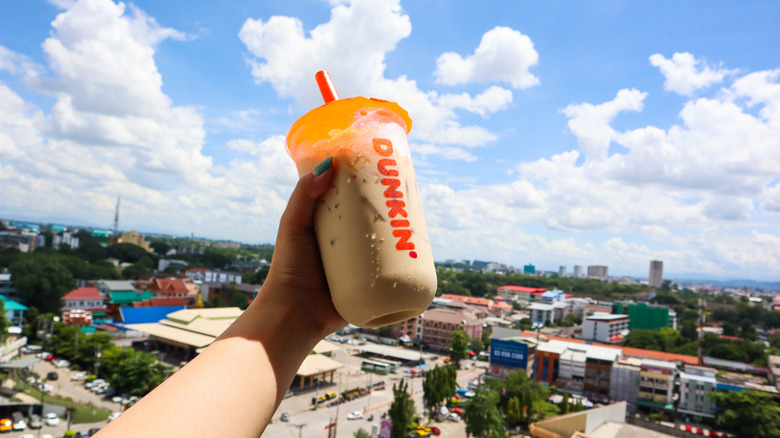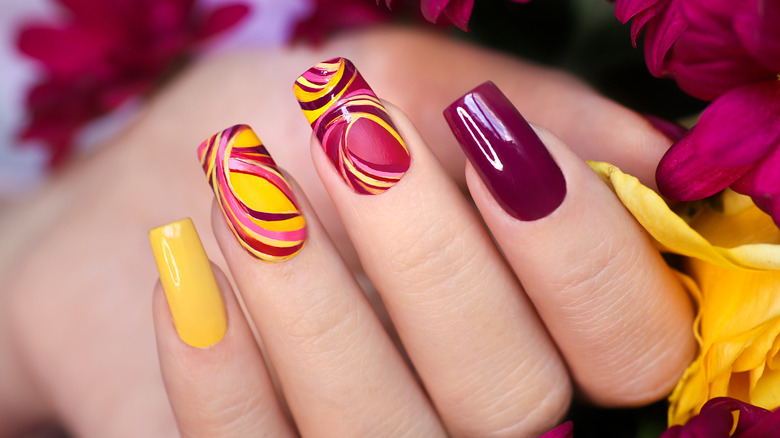Why Dunkin' Employees Can't Have Acrylic Nails
Almost anyone who's worked in the food industry can tell you fake nails are a big no-no. Acrylics, gels, and press-ons are banned behind the counter in many fast food and fast-casual restaurants, including Chick-fil-A, sit-down chains like Olive Garden, and even some Costco departments have weird nail rules (via How I Got The Job). According to NAILS Magazine, Kellogg's even banned acrylics and press-ons back in 1998 after claims that errant acrylics were turning up in cereal boxes.
While accounts of plastic nails floating in food are seemingly more urban legend than common occurrence, certainly there are plenty of rules and regulations on the subject for nail-conscious food workers — especially at popular coffee chain Dunkin' (formerly Dunkin' Donuts).
Dunkin' is a franchise, so each location has slightly different rules, but the no-artificial-nails directive seems to hold true across the board. However, according to Dunkin' employees on Reddit, some Dunkin' locations allow gels without false extensions, as the real difference between gels and acrylics is basically that gels are way less likely to pop off. A Dunkin' employee handbook from a Florida franchise with multiple locations, accessed through Secure Efficient Forms, specifically details quite a lot of nail-related rules: no artificial nails of any kind, no "nail charms," no fun nail decals, and even limitations on natural nails: "not more than ½" long from the tip of the finger," which honestly seems pretty long given the severity of their feelings about instant nail art.
Aesthetic issue or a safety risk?
But it's not just retailers making these rules. According to the FDA's 2017 Food Code, which has a whole section on fingernails (yes, really), the FDA recommendation is that "a food employee may not wear fingernail polish or artificial fingernails when working with exposed food." Though one may not think of Dunkin' employees as preparing food when they hand you your iced coffee and strawberry-frosted at the drive-through, remember that same employee probably put that donut in the oven that morning. According to FDA guidelines, plastic gloves are an acceptable alternative to the no-nails policy. But when you take into account that Dunkin' employees regularly reach into burning hot toasters and even hotter ovens pulling out trays of donuts, bagels, and new hummus and avocado toasts, just adding plastic gloves doesn't seem like the best solution.
Though not required, the FDA Food Code may be adopted by "local, state, and federal governmental jurisdictions" at will (via U.S. Food & Drug Administration). Meaning it can become the legal precedent anywhere that chooses to adopt it. So for national brands like Dunkin' and Chick-fil-A, it just makes sense to follow FDA-compliant policy nationwide. Plus, the 2017 FDA Food Code is literally what the US government's top relevant authorities think are the best practices to keep foodservice safe and healthy for all, including reducing accidents (like getting an acrylic wedged in the bread slicer — beyond ouch!) and reducing foodborne illness. Doesn't sound like the worst idea.

